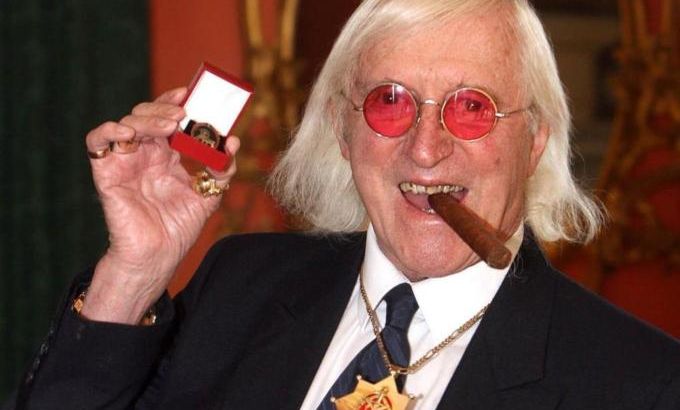Sex abuse scandal rocks BBC
More than 200 potential victims of sexual abuse and harassment by staff, including Jimmy Savile, have been identified.

The head of the BBC defended on Tuesday the broadcaster’s response to allegations of sex abuse by late TV star Jimmy Savile before British lawmakers, but admitted its reputation had taken a hit.
Director General George Entwistle said the world’s biggest public broadcaster regretted dropping a television probe into allegations of widespread abuse of underage girls by Savile.
Keep reading
list of 4 itemsInside the pressures facing Quebec’s billion-dollar maple syrup industry
‘Accepted in both [worlds]’: Indonesia’s Chinese Muslims prepare for Eid
Photos: Mexico, US, Canada mesmerised by rare total solar eclipse
But Entwistle, who only took over the position this summer, denied that pressure from BBC top brass had forced flagship current affairs television show “Newsnight” to shelve its investigation late last year.
“There is no question in my mind this is a very grave matter indeed,” Entwistle told parliament’s Culture, Media and Sport Committee.
“One cannot look back on it with anything other than horror.”
Savile, a DJ who rose to become one of the biggest and most distinctive personalities of BBC television from the 1960s until the 1980s, died last October aged 84.
Two weeks ago the BBC’s commercial rival ITV aired allegations by several women about the entertainer, who was known for his shiny tracksuits, gold jewellery and ever-present cigar.
Newsnight editor Peter Rippon announced Monday that he was “stepping aside” while the BBC carries out an inquiry into why the Savile item was axed.
Entwistle, himself under pressure because he decided to proceed with tribute shows about Savile over Christmas, told lawmakers on Tuesday that the “Newsnight” investigation should not have been dropped.
He admitted that the BBC’s head of news, Helen Boaden, had told him about the Newsnight investigation in December last year: he did not pursue it because he did not want to be seen as wielding editorial influence, he said.
Fallout
The New York Times public editor has questioned whether the newspaper’s incoming chief executive, the former BBC head Mark Thompson, is fit to serve as the company’s top official as a scandal shakes Britain’s most prestigious broadcaster.
One Wall Street analyst called for the New York Times Co to delay Thompson taking over the company, adding more
pressure on executives to address the matter on the company’s earnings conference call on Thursday.
“How likely is it that [Thompson] knew nothing?” New York Times public editor Margaret Sullivan wrote in a blog post on Tuesday.
“His integrity and decision-making are bound to affect The Times and its journalism – profoundly. It’s worth considering now whether he is the right person for the job, given this turn of events.”
A New York Times spokesperson declined to comment.
No evidence has emerged in police and parliamentary investigations that shows Thompson knew about the decision to
pull the Newsnight programme or about Savile’s alleged behavior.
‘Lack of curiosity’
Committee chairman John Whittingdale accused Entwistle of showing an “extraordinary lack of curiosity” by not asking exactly what claims the Newsnight team were investigating.
But Entwistle said Rippon had decided to cancel the investigation “on his own account”.
“I’ve been able to find no evidence … that any kind of managerial pressure was applied,” he told lawmakers.
The director general said he had asked Rippon to step aside because of inaccuracies in a blog post the Newsnight editor had written this month explaining his decision to shelve the Savile investigation.
Entwistle conceded that the affair would “raise questions of trust” in the BBC.
But he defended the BBC’s reaction to the scandal, insisting the organisation was working closely with the police and that its own twin internal probes would thoroughly investigate what happened.
He also said the BBC should be “incredibly proud” of its decision to air a special episode of its main investigative television show “Panorama” dealing with the Savile scandal on Monday night.
The show included an interview with a lawyer for some of Savile’s alleged victims, who said there was evidence of a paedophile ring operating within the BBC during the star’s heyday in the 1960s and 1970s.
Scotland Yard says it believes there may have been as many as 200 victims, and that it is investigating suspects linked to Savile who are still alive.